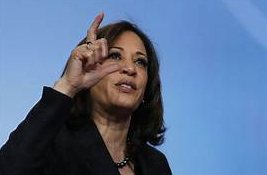While online enthusiasm for Harris grows, presidential elections hinge on winning the margins.
Americans hoping for a meaningful, policy-driven debate on critical national issues such as fentanyl, inflation, China’s rise, and immigration may find themselves disappointed. Instead, the conversation surrounding Kamala Harris’s campaign has largely been shaped by center-left media and progressive voices on platforms like X, which are cultivating an identity-politics-driven narrative around the vice president.
This shift in focus contrasts sharply with the concerns of many voters, who are looking for solutions to real and pressing problems. Meanwhile, Harris’s main rival, Donald Trump, faces his own struggle to break free from the meme-driven, online-centric right-wing messaging and appeal to a broader, more centrist electorate.
The Democratic Party initially welcomed Biden’s exit from the 2024 race, as it alleviated mounting pressure from both donors and political elites. His decision paved the way for Harris’s swift and unchallenged nomination, preventing an open convention that could have risked deep division within the party.
Yet, Harris’s momentum has been propelled more by media-created fervor than by substantive policy proposals. While she enjoys growing support online and among progressive circles, the reality of presidential campaigns reveals that elections are ultimately won by appealing to the political center, not online fanbases.
This situation poses a major challenge for Harris’s candidacy. While she may enjoy the praise of her supporters, the real test will come when she faces off against voters concerned about issues that matter most to their daily lives.
Ultimately, the success of her campaign will depend on her ability to move beyond the online hype and create a compelling, policy-driven platform that resonates with a wide range of voters. The road ahead may be harder than her growing media presence suggests.

